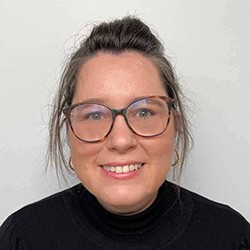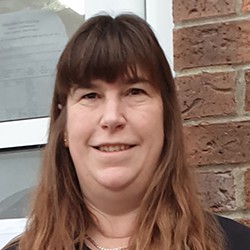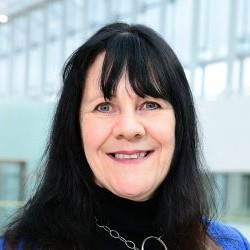Regulatory Sciences Forum
The Regulatory Sciences Forum provides strategic steer for our work in regulatory safety assessment.
The Regulatory Sciences Forum is a cross-sector advisory group to:
- Facilitate regular dialogue and joint working between policy makers, regulators, industry end users and method developers on issues related to development, validation and acceptance of 3Rs approaches, including new approach methodologies (NAMs)*.
- Identify priority areas to inform our work in this area, providing expert advice on the potential 3Rs impact and opportunities to deliver change in policy and practice.
- Support newly established projects alongside, where appropriate, ad hoc expert working groups and the NC3Rs NAMs Network.
The Regulatory Sciences Forum has a core group of scientific experts representing UK regulatory and government agencies, contract research organisations, industry and academia, alongside independent specialists. The group is overseen by Dr Natalie Burden, NC3Rs Head of New Approach Methodologies (NAMs) Strategy.
Membership

Camilla Alexander-White is an independent chemical safety assessor of three decades’ experience. Camilla currently works part time for the Royal Society of Chemistry leading the work on establishing a UN science-policy panel for chemicals, waste and pollution prevention. Camilla performs science-policy diplomacy work internationally and in her research work, she devises regulatory safety assessment strategies for chemical ingredients in cosmetic products and advises on the use and acceptance of new approach methodologies in next generation risk assessment. She is an independent science advisor to the UK government for a number of science advice committees. Previously, after a decade at Unilever working on developing new approach methodologies for consumer safety assessment, she was a Principal Scientist at the Environment Agency (England and Wales) and Senior Manager in UK and USA leading on human health at Ramboll Environ. She has worked across USA, UK, EU and Japan on the regulatory safety of globally critical product ingredients and assessing environmental contaminants in air, soil, water and waste.

Phil Botham is currently Principal Science Advisor for Syngenta’s Global Product Safety organisation. He has held a number of senior leadership roles in Syngenta and its legacy companies in the area of human safety and toxicology since 1980, including as Global Head of Product Safety. Phil has a broad technical background in chemical and agrochemical human safety, has published more than 140 peer-reviewed papers and was appointed as a Fellow of the Royal College of Pathologists in 2001. He has chaired the Crop Life International and Crop Life Europe Human Health Expert Groups and continues to support them as a senior technical advisor. He has served as members of the European Centre for Ecotoxicology and Toxicology of Chemicals (ECETOC) Scientific Committee, the UK Food Standards Agency Committee on Toxicity, the NC3Rs Board and the European Centre for the Validation of Alternative Methods (ECVAM) Scientific Advisory Committee. Phil is currently president of the British Toxicology Society, having been a member for over 30 years and previously also chairing their Public Communications Steering Team.

Steve Gutsell is currently Head of Regulatory Science – Chemical Safety at Unilever. His doctoral research at the University of Swansea investigated the underlying mechanisms causing skin sensitisation of diketones. Since joining Unilever’s Safety and Environmental Assurance Centre in 2003, Steve has developed expertise in computational chemistry, specifically using predictive methods such as Quantitative Structure-Activity Relationships (QSAR), read across and other techniques to predict both toxicological and ecotoxicological endpoints from chemical structures. He has published many papers in this area and presented at numerous international scientific and regulatory meetings. During his career Steve has also worked closely with colleagues in Unilever’s global regulatory affairs teams to advocate for the use of non-animal methods in chemical registrations. In recent years Steve has led the Unilever team to apply the very latest in next generation risk assessment approaches to chemical registrations to uphold the “animal testing as a last resort” principle.

Ben Harding is a senior regulatory toxicologist working in the Health and Safety Executive’s Chemicals Regulation Division. As part of the Classification, Labelling and Packaging & Globally Harmonised System (CLP & GHS) delivery team, Ben works on the regulatory hazard assessment (and mandatory classification) of industrial chemicals, biocides and pesticides. Ben has also supported a number of projects completed under the UK REACH regulation. Ben has spent the last four years alongside other experts from the UK and Netherlands as a lead member of the United Nations GHS informal working group on the use of non-animal test methods for classification of health hazards. This group is working to make amendments and additions to the GHS to facilitate hazard classification using non-animal methods.

Frances Hill is a regulatory toxicologist, having worked within the UK government for over 20 years on a range of topics. She is currently working at the Office for Product Safety and Standards based within the UK Department of Business and Trade and leads the chemical risk assessment team, working to ensure that chemical risks relating to consumer products are identified and regulated appropriately. Frances has worked with a number of UK scientific advisory committees, including as secretariat of the Food Standards Agency’s Committee on Toxicity and Advisory Committee on Novel Foods and Processes, and established a committee advising on the chemical safety of consumer products. Frances has also been a member of some international committees and working groups such as the European Food Safety Authority’s flavouring working group and as a temporary advisor for the WHO/UN Food and Agriculture Organization Joint Expert Committee on Food Additives. Frances currently serves on the International Collaboration on Cosmetics Regulation working group on integrated approaches to safety assessment.

As the UK National Coordinator for the OECD Test Guidelines Programme, Philippa Kearney manages UK-led environmental Test Guideline projects and coordinates expertise and policy input to support international development of Test Guidelines for the assessment of chemicals. Philippa’s work as a senior scientific officer at the Department for Environment, Food & Rural Affairs (Defra) also involves engagement on new approach methodologies via the UK cross-government group on New Approaches to Chemical Risk Assessment in the Regulatory Space, the NC3Rs Ecotoxicology Working Group, and various international collaborations for progressing new approach methodologies in environmental hazard and risk assessment. Previously, Philippa has worked on science policy briefings under the Parliamentary Office of Science and Technology and received a PhD in Chemistry from the University of Bath, researching endocrine disruptors in marine environments.

John is a Director of Science and Strategy within Labcorp’s global Metabolism and Environmental Sciences division of Early Development. As a Home Office Project Licence Holder for over 10 years, and Harrogate site Animal Welfare and Ethical Review Body (AWERB) Chair, John has global insight into new approach methodologies being developed across Labcorp and the wider pharmaceutical industry, from organ-on-chip to in vitro replacements for crop protection and chemical registrations, and has championed the 3Rs in drug discovery and regulatory work for new medicines. John had led scientific sessions at UK, EU and US symposia promoting animal welfare, or challenging the status of the use of animals and translatable alternatives. He has published in peer review journals on the scientific direction of animal use and refinements to the use of non-human primates, dogs and rodents. With over 20 years’ experience of the contract research environment, John continues to highlight the challenges and opportunities to adoption and translation of new approach methodologies to replace in vivo animal safety testing in drug development. John recently became a secondee to the UK Government Office for Life Sciences, supporting the activities around the UK commitment to phasing out animal testing.

James McBlane completed a PhD in pharmacology and worked for the drug company Wellcome, before moving to the Medicines Control Agency and then to the Japanese biopharmaceutical company, Chugai, where he worked for 10 years. He has worked at the Medicines and Healthcare products Regulatory Agency since 2005, including as an assessor in the Clinical Trial Unit and the unit for licensing biological products, where he now works. James has worked on thousands of clinical trials and hundreds of marketing authorisation applications. Based on this experience, he gives scientific advice to drug developers on a weekly basis. Prior to the UK leaving the European Union, he was one of the UK’s two delegates to the European Medicines Agency's Committee for Advanced Therapies and was also part of their Scientific Advice Working Party.

Dan O'Connor is Director of Regulatory and Early Access Policy at The Association of the British Pharmaceutical Industry (ABPI). He joined the ABPI from the Medicines and Healthcare products Regulatory Agency in 2023 where he was Deputy Director of the Innovation Accelerator and Regulatory Science. Dan has special interests in drug development, rare diseases, regulatory science, early access, health innovation, patient engagement and drug repurposing. He completed higher medical training in pharmaceutical medicine, in addition to a PhD in cancer research. He is Editor-Author of the Oxford Specialist Handbook in Pharmaceutical Medicine.

Olivia Osborne is a multidisciplinary (eco)toxicological chemical risk assessment scientist in the fields of human health and the environment. She currently works at the Food Standards Agency in the Science Evidence and Research Division focusing on chemical risk assessment and new approach methodologies using next generation tools. She contributes to a number of working parties, partnerships and initiatives including as co-chair of the UK cross government group on New Approaches to Chemical Risk Assessment in the Regulatory Space. Olivia received a PhD from the University of Exeter in (eco)toxicology, nanotechnology and developmental biology. In her postdoctoral research at the California NanoSystems Institute she established high throughput screening platforms for nanoparticles and compound assessment using novel strategies. She has worked on a wide variety of projects including nanotechnology, food, consumer products, anti-fouling paints, biomedical applications, plastics and semiconductor technologies (including e-waste). She has collaborated and worked with numerous multi-stakeholders, consortiums, policy makers and working groups in the UK, Europe, USA as well as other international collaborators.

Audrey Pearson is a regulatory ecotoxicologist with 25 years’ experience working on the environmental fate, behaviour and effects of chemicals. Initially starting in industry, she has been at the Environment Agency for 20 years, principally working in the Chemicals Assessment Unit on regulatory hazard assessment (and classification) of industrial chemicals under the REACH and Classification, Labelling and Packaging regulations. Audrey also supports UK work with the OECD on hazard assessment and environmental test guidelines. For the last six years, Audrey has led the Environment Agency’s work on the 3Rs and is the current chair of the NC3Rs Ecotoxicology Working Group. With growing societal and scientific momentum to apply the 3Rs, Audrey is keen to explore and utilise opportunities for new approach methodologies within regulatory assessments.

Shirley Price is currently Emerita Professor of Toxicology at the University of Surrey and has over 35 years’ experience in the field, specialising in mechanisms of toxicity, risk assessment of chemicals, combined effects of chemical mixtures at low exposure levels and the systemic effect of non-genotoxic carcinogens. Shirley has held a number of senior posts at the University of Surrey, is a Visiting Professor of Toxicology at the University of Hertfordshire and holds an Honorary Professorship in Toxicology with the UK Health Security Agency. She has been instrumental in providing training programmes in toxicology to industry, regulators and academics and currently chairs the British Toxicology Society’s Skills Gap Initiative steering committee and advisory board. Shirley is an Honorary Fellow, trustee and General Secretary of the British Toxicology Society , having served as the society’s president 2020-2022. She has worked on and chaired a number of government committees focusing on toxicity of medicines, food, consumer products and the environment, and advises the Office for Product Safety and Standards and the Joint European Committee on Food Additives. Shirley is a trustee of the Carbon Monoxide Research Trust and Editor in Chief of the Toxicology Research journal. She was appointed an OBE in the 2025 King's Birthday Honours.

Roger Pullin is Head of Chemicals Management Policy and Health at the Chemical Industries Association, representing and advising over 200 chemical and pharmaceutical companies across the UK, both nationally and internationally. He leads and manages the trade association’s chemicals management team and has responsibility for the members’ chemicals management strategy group. With over 20 years’ experience in chemicals regulatory policy, Roger specialises in existing and emerging UK, EU and international chemicals management challenges and developments, engaging with government, industry, academia, and NGO stakeholders to advise and effect solutions. He also co-leads the association’s work on regulatory and policy aspects of workplace health topics and is one of REACHReady’s team of consultants aiding companies to implement UK- and EU-REACH regulatory requirements. Roger has authored and co-authored articles, blogs, and positions (working with Chemical Industries Association members), as well as both good practice guides and the development of tools on workplace health and wellbeing. This includes the Chemical Industries Association’s positions related to new approach methodologies. Roger also represents the association on the British Toxicology Society’s Skills Gap Initiative advisory board.

Melissa Reed has a background in ecotoxicology, specialising in mechanistic effects modelling. She started work as a regulatory ecotoxicologist with the UK Health and Safety Executive in 2000, being responsible for performing ecotoxicological risk assessment for substances regulated under the Biocidal Product Regulation and Plant Protection Product Regulation, also contributing to the environmental aspects of harmonised proposals under the Classification, Labelling and Packaging regulation. She has been contributed to several European Food Safety Authority scientific opinions including those on good modelling practice and the use of toxicokinetic-toxicodynamic effect models for regulatory risk assessment of pesticides for aquatic organisms. She also has an interest in new approach methodologies and extending their use in ecotox assessment and is currently the Head of the Ecotoxicology Team with the Chemicals Regulation Division of the UK Health and Safety Executive.

Ruth Roberts is Chair and Director of Drug Discovery at Birmingham University and cofounder of ApconiX, an integrated toxicology and ion channel research company. Previously, Ruth was Global Head of Regulatory Safety at AstraZeneca. Ruth is former president of several international scientific societies and is current chair of the Health and Environmental Sciences Institute (HESI) Board. She was elected fellow of the Royal College of Pathologists in 2012 and the Royal Society of Biology in 2014. She has received numerous awards including the 2022 ‘Millie’ award for lasting impact on science and has over 160 publications in peer reviewed journals. Ruth is interested in developing and implementing innovative models in drug discovery and development.

Natalie Sims is a Policy Advisor at the Royal Society of Chemistry, specialising in environmental health policy. She holds a PhD in Chemistry from the University of Bath, where her research focused on wastewater-based epidemiology and chemical pollutants in environmental waters. She previously worked as an Environmental Policy Consultant at WSP, delivering technical policy work on chemicals and water for UK Government and EU institutions. Her work included evaluating the implementation of the Water Framework Directive, developing risk management evaluations for hazardous chemicals, and assessing the environmental and human health impacts of pollution.

Sandrine Vessillier is a principal scientist at the Science Campus of the Medicines and Healthcare Products Regulatory Agency in the UK. She develops research strategies in immunotoxicology to ensure the safety and efficacy of immunotherapy products. Sandrine initiates and maintains collaborative partnerships with relevant organisations to understand and evaluate new technologies and models for immune safety assessment. She is an active member of the Health and Environmental Sciences Institute (HESI) Immune-Safety Technical committee and co-leads a working group on method development to optimise methodologies used for immune safety testing and assure correct data interpretation. Sandrine has led projects to standardise and increase confidence and robustness of safety data from preclinical in vitro cytokine release assays and immunogenicity risk assessment. As an affiliate of the Queen Mary Centre for Predictive in vitro Models, Sandrine supports the Centre for Doctoral Training in Next Generation Organ-Chip Technologies on delivering the training programme and provides expertise in quality control and assay development to enhance the reproducibility and reliability of these novel in vitro models.
* We use the term new approach methodologies specifically to refer to full and partial replacement approaches for assessing chemical or drug toxicity. Learn more on our page on NAMs terminology.
The NAMs Network is a community of researchers, developers and industry and regulatory end-users working together to accelerate the use of new approach methodologies.

